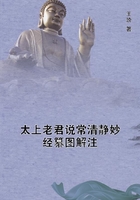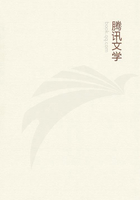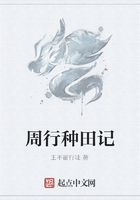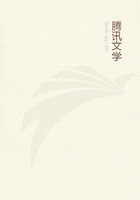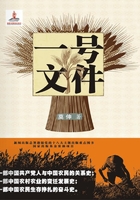Immense masses of property were confiscated. Every part of Europe swarmed with exiles. In moody and turbulent spirits zeal soured into malignity, or foamed into madness. From the political agitation of the eighteenth century sprang the Jacobins. From the religious agitation of the sixteenth century sprang the Anabaptists. The partisans of Robespierre robbed and murdered in the name of fraternity and equality. The followers of Kniperdoling robbed and murdered in the name of Christian liberty. The feeling of patriotism was in many parts of Europe, almost wholly extinguished. All the old maxims of foreign policy were changed. Physical boundaries were superseded by moral boundaries. Nations made war on each other with new arms, with arms which no fortifications, however strong by nature or, by art, could resist, with arms before which rivers parted like the Jordan, and ramparts fell down like the walls of Jericho. The great masters of fleets and armies were often reduced to confess, like Milton's warlike angel, how hard they found it "--To exclude Spiritual substance with corporeal bar."
Europe was divided, as Greece had been divided during the period concerning which Thucydides wrote. The conflict was not, as it is in ordinary times, between state and state, but between two omnipresent factions, each of which was in some places dominant and in other places oppressed, but which, openly or covertly, carried on their strife in the bosom of every society. No man asked whether another belonged to the same country with himself, but whether he belonged to the same sect. Party-spirit seemed to justify and consecrate acts which, in any other times, would have been considered as the foulest of treasons. The French emigrant saw nothing disgraceful in bringing Austrian and Prussian hussars to Paris. The Irish or Italian democrat saw no impropriety in serving the French Directory against his own native government.
So, in the sixteenth century, the fury of theological factions suspended all national animosities and jealousies. The Spaniards were invited into France by the League; the English were invited into France by the Huguenots.
We by no means intend to underrate or to palliate the crimes and excesses which, during the last generation, were produced by the spirit of democracy. But, when we hear men zealous for the Protestant religion, constantly represent the French Revolution as radically and essentially evil on account of those crimes and excesses, we cannot but remember that the deliverance of our ancestors from the house of their spiritual bondage was effected "by plagues and by signs, by wonders and by war." We cannot but remember that, as in the case of the French Revolution, so also in the case of the Reformation, those who rose up against tyranny were themselves deeply tainted with the vices which tyranny engenders. We cannot but remember that libels scarcely less scandalous than those of Hebert, mummeries scarcely less absurd than those of Clootz, and crimes scarcely less atrocious than those of Marat, disgrace the early history of Protestantism. The Reformation is an event long past. That volcano has spent its rage. The wide waste produced by its outbreak is forgotten. The landmarks which were swept away have been replaced. The ruined edifices have been repaired. The lava has covered with a rich incrustation the fields which it once devastated, and, after having turned a beautiful and fruitful garden into a desert, has again turned the desert into a still more beautiful and fruitful garden. The second great eruption is not yet over. The marks of its ravages are still all around us. The ashes are still hot beneath our feet. In some directions the deluge of fire still continues to spread. Yet experience surely entitles us to believe that this explosion, like that which preceded it, will fertilise the soil which it has devastated. Already, in those parts which have suffered most severely, rich cultivation and secure dwellings have begun to appear amidst the waste. The more we read of the history of past ages, the more we observe the signs of our own times, the more do we feel our hearts filled and swelled up by a good hope for the future destinies of the human race.
The history of the Reformation in England is full of strange problems. The most prominent and extraordinary phaenomenon which it presents to us is the gigantic strength of the government contrasted with the feebleness of the religious parties. During the twelve or thirteen years which followed the death of Henry the Eighth, the religion of the state was thrice changed. Protestantism was established by Edward; the Catholic Church was restored by Mary; Protestantism was again established by Elizabeth. The faith of the nation seemed to depend on the personal inclinations of the sovereign. Nor was this all. An established church was then, as a matter of course, a persecuting church. Edward persecuted Catholics. Mary persecuted Protestants.
Elizabeth persecuted Catholics again. The father of those three sovereigns had enjoyed the pleasure of persecuting both sects at once, and had sent to death, on the same hurdle, the heretic who denied the real presence, and the traitor who denied the royal supremacy. There was nothing in England like that fierce and bloody opposition which, in France, each of the religious factions in its turn offered to the government. We had neither a Coligny nor a Mayenne, neither a Moncontour nor an Ivry. No English city braved sword and famine for the reformed doctrines with the spirit of Rochelle, or for the Catholic doctrines with the spirit of Paris. Neither sect in England formed a League.
Neither sect extorted a recantation from the sovereign. Neither sect could obtain from an adverse sovereign even a toleration.

